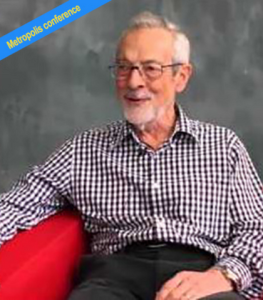Vale Stephen Castles
One of the world’s leading scholars on refugee issues, Professor Stephen Castles, has passed away.
The former Director of Oxford University’s ground breaking Refugee Studies Centre (RSC) died in Australia, aged 77.
Prof Castles was Director of the RSC from 2001 to 2006. He led the organisation during an important time and spearheaded considerable expansion and change.
He was also, he was also responsible for the establishment of Oxford’s Centre on Migration, Policy and Society (COMPAS) and the International Migration Institute.
The current Director of the RSC Professor Matthew Gibney said Prof Castles was “truly one of the greats of migration scholarship”.
“Few scholars match him even today for name recognition and breadth of readership. He was a penetrating thinker, who used his rigorous sociological grounding and encyclopaedic knowledge of world migration to puncture prejudice and convenient assumptions about the causes and consequences of the international movement of people,” Prof Gibney said.
“Stephen’s work was renowned for linking seemingly disparate migration events to large-scale global phenomena, notably economic globalisation. His work on migration and social transformation was itself transformative.
“Above all, Stephen was a truly humane scholar who saw in academia a way of using research to improve the situation of marginalised and often persecuted people.
“He was a gentle, kind and available head of the RSC. He made it a better place, just as he did the world as a whole. We are all in his debt,” Prof Gibney said.
Speaking at a conference in Sydney in 2018, Professor Castles said migrants were being used as scapegoats by politicians as they exploit the increased feelings of vulnerability in their electorates and frustration with congestion and infrastructure overload/
 The political climates in Australia and in other countries were seeing the perpetuation of myths around migrants and their impact on societies, Prof Castles told the International Metropolis Conference.
The political climates in Australia and in other countries were seeing the perpetuation of myths around migrants and their impact on societies, Prof Castles told the International Metropolis Conference.
“While 28 per cent of our population comes from overseas, it’s always been that the latest group is to blame for the problems we face on the day,” he told the conference.
“In the 50s it was the Italians and Greeks, in the 60s it was the Vietnamese who were blamed for crime, the drug trade and so on,” he said.
Professor Castles delivered his talk hot on the heels of then NSW Premier, Gladys Berejiklian’s announcement that she wanted the state to return to ‘Howard-era immigration levels’, which would mean halving the state’s migrant intake, due to concerns about population expansion.
But Professor Castles pointed out that ABS figures showed permanent arrivals in Australia have changed little since the time of Prime Minister John Howard, but higher net overseas migration figures have been driven largely by students, tourists and skilled migrants.
He said that while refugees and asylum seekers get a lot of attention, in numbers, they only constitute a very small part of Australia’s intake, the largest portion coming from skilled migration with permission to come here, work and stay permanently.
“We have to change the perceptions that economic migration is good and persecuted migration is bad, it is terribly short-sighted,” Prof Castles said.
“We’re hearing about pressure on infrastructure, housing and transport but in fact labour shortages brought by reduced migration will cost us a lot more,” he said
“Refugees and migrants are about three times more likely to start a business.
“Immigrants are generally healthier and use public services less than the rest of us even though they contribute more in tax per capita,” he said.
Prof Castles also raised the moral imperative of accepting migrants and refugees.
“Across the world, there are 30,000 people a day who must leave their homes to seek asylum, and Australia only takes roughly 15,000 people a year,” he said.
“Refugees have made a huge contribution to economy and society, and it isn’t fair not to recognise that.
“Australia used to be a leader in human rights, and now we have become a leader in violating human rights,” Prof Castles said.
He said that often places with the lowest levels of immigration are the most anti-immigration.
“This generates myths about newcomers, so we are engaged in a battle of ideas,” Prof Castles said.
Mostly recently based at the University of Sydney, Prof Castles had an illustrious career in cutting-edge migration research spanning 50 years.
He was a sociologist and political economist, and worked on international migration dynamics, global governance, multiculturalism, transnationalism, migration and development, and regional migration trends in Africa, Asia and Europe.












